These words are related to the surpassing of our capacity to solve human affairs in the public arena. It is understood that the uniqueness of human beings makes the comprehension of the messages we send to each other when we meet subjective, and elusive, and therefore the encounter between us –precisely the origin of the public- becomes inherently charged with conflictivity. Conflict is thus a protean term that may have positive connotations, although we haven’t made clever use of it; perhaps because it is easy to fall into the imposition of ideas by force, which implies violence and this is always the first to occur among the issues defined by the three words. When the excess is so violent that The Conflict becomes a proper name –as is the case in Colombia, Palestine, Syria– the only way out –Hanna Arendt warned us– are agreements and pardon. However, neither one may occur without the help of the miraculous balm of bitter ingredients that is memory.
AmpliarAsymmetry, impossibility, contradiction, repression, redundancy, inequality, fragility, resistance, participation, transformation, creativity, solidarity, community, organization, rights, justice, (…) they are common terms that described the ways of living and being together today in every city in the world. However, these forms of life that we believe are not like others, somehow replicate elsewhere. Some of the invited works at MDE15 reveal the global flows that define inequalities of modern life, while encouraging other reasons to persevere.
AmpliarThe artists’ works gathered in this group inquire about the ways in which power is exercised on the bodies, both physical and social, individual and collective. They do this through the creation of alternative narratives to the official history, by giving space to suppressed voices and to subjects that have been made invisible, by shifting the place of the gaze to subvert power relations, and by destabilizing common perceptions about the spaces in which we wander. Here identity is understood as an instance permanently constructed and dismantled. In many cases, the works use different strategies –that range from the solemn critical distance to the most ironic approach— to reveal the effects that colonialism and its latent dynamics have had, and still exert, on the bodies.
AmpliarThe definition of the word institution testifies to the panorama of its possible interpretations. In more specific terms city, state and national governmental entities are institutions, as are schools, museums, libraries etc. Less official institutions might include personal relationships, family, churches or religions and criminal structures. Finally, individuals such as local heroes, community elders, public figures such as politicians and entertainers can become institutions. The works in this group show how different formal or informal institutions can be portrayed in ways that amuse or entertain while creating opportunities to question and reflect upon the relationship of the institution to the individual and the institution’s relationship with the community.
AmpliarThe expanding global cities have become the battlefield for the clash between the private interests of the capital and public property. The street, the neighborhood, the front and back alleys are contested spaces of the everyday struggle, but also sites of energy, creativity and resilience. There is a lot we can learn by observing and getting involved in the daily challenges and their solutions at grassroots level. The interventions of the artists and architects of MDE15 are conceived together with people and communities. Sharing their dreams and desires these works reflect on the dynamics of the context, and propose new physical and symbolical spaces to be experienced and inhabited collectively.
Ampliar























